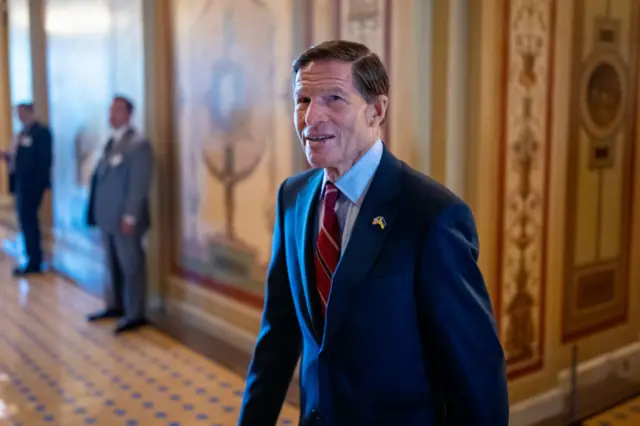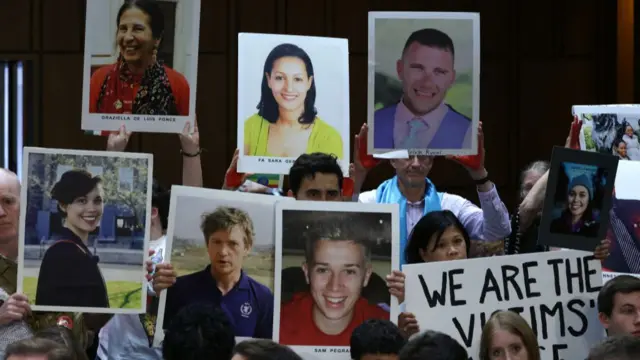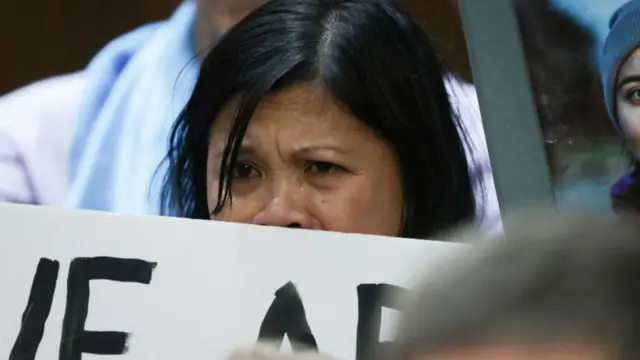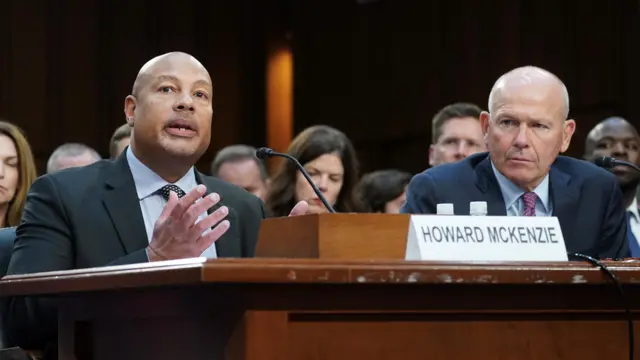Emotions run high as victims' families listen to Boeing CEO's testimonypublished at 22:47 BST 18 June 2024
 Brandon Livesay
Brandon Livesay
US reporter
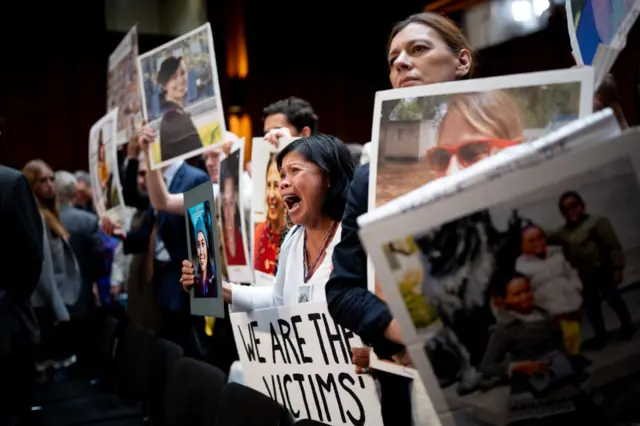 Image source, Getty Images
Image source, Getty ImagesThere were three distinct groups in this Senate hearing:
- Boeing CEO Dave Calhoun and chief engineer Howard McKenzie
- Family members of victims who died in Boeing plane crashes
- US lawmakers pushing the Boeing boss for firm answers
None of these groups will likely leave today with any real sense of closure.
Many of the senators were direct in their questioning, even aggressive, as they asked about treatment of whistleblowers and safety practices.
Calhoun offered an apology to the victims' families of fatal Boeing crashes, and admitted his firm needed to be better.
But he could not tell lawmakers how many whistleblowers had been fired or disciplined for speaking out, just that he knew it had happened.
Victims' families watched the hearing while holding photos of their loved ones high above their heads. When Calhoun entered the room, some yelled at him. When he left, they screamed again. One woman cried out: "How could you?".
We're finishing our live coverage, but you can read more about the dramatic hearing here.
Caitlin Wilson reported for us from the hearing at Capitol Hill in Washington DC, and business reporter Natalie Sherman provided additional analysis.
Thanks for following along.

